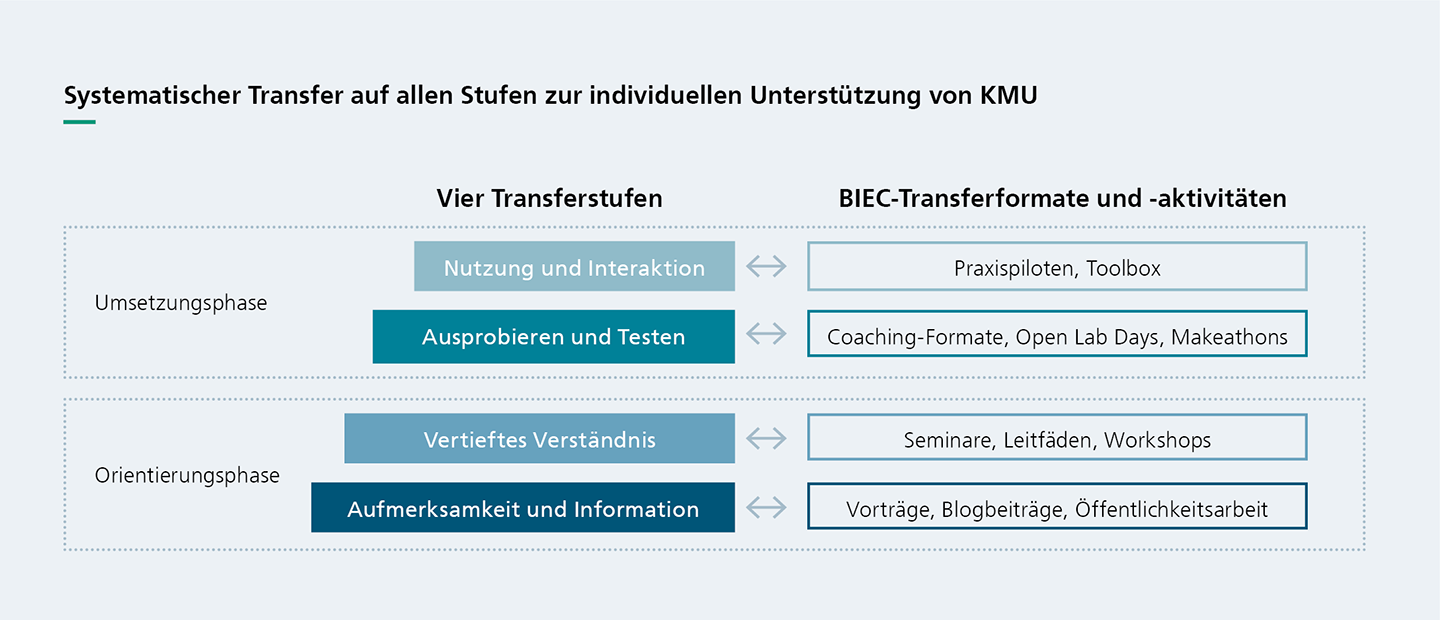Digital transformation poses a big challenge for small and medium-sized enterprises (SMEs). Fraunhofer IAO is supporting these companies, helping them benefit from new technologies through tailored project formats.
From quality control in production, to organizing customer inquiries, to identifying targets groups, artificial intelligence (AI) can help companies wherever data needs complex analysis and evaluation. Tasks that take humans lots of time can be taken care of by algorithms in just a few seconds.
This is an advantage that many German companies are already aware of and exploiting. According to a study by the Institute of German Industry (IW), the proportion of large firms using AI has increased from 17.2% to 40% between 2019 and 2021. However, the same study shows that small and medium-sized enterprises (SMEs) are lagging behind. Only 17.6% of them were using the technology in 2021.
Are German small and medium-sizes enterprises sleeping through the AI revolution? Fraunhofer IAO has started a range of initiatives to prevent that, aiming to help SMEs to use AI technologies along their value chain or even develop entirely new business models.
